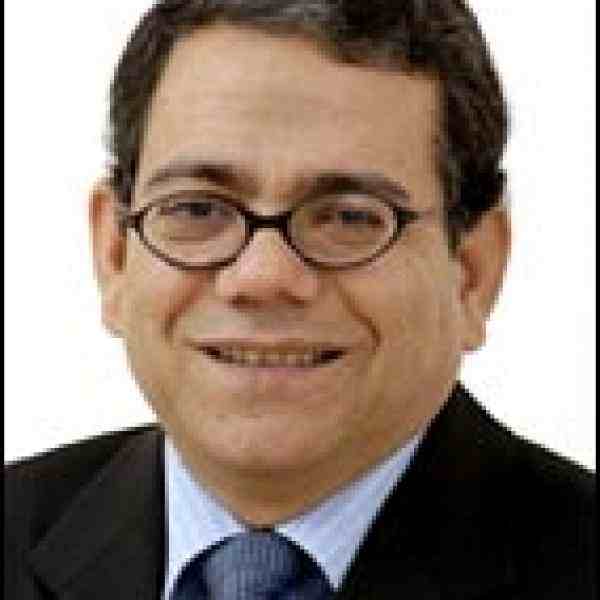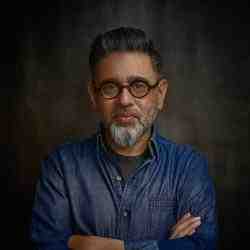Introduction
The millions of people working in Egypt’s informal economy face high occupational risks and low standards of legal protection. In the informal sector, health insurance, job security, and basic rights are both vitally important and very rare. The dangerous, grueling work of the country’s more than 200,000 quarry workers makes their need particularly great. Maher Bushra fights to establish legal, social and economic protections for these neglected workers as a first step toward guaranteeing basic rights to all the workers of his country’s informal economy.
The New Idea
The informal sector is a key segment of the Egyptian economy, currently employing about 40 percent of the labor force and expected to employ fully half of new entrants to the labor force over the next 20 years. By focusing on quarry workers—among the most exploited workers in the informal economy—Maher tackles neglect and abuse in their strongest forms. Through years of work, he has built a model for organization and advocacy among quarry workers that will serve as a tool to secure rights and services for the millions of workers who make their living in the informal sector.
Maher has shown a talent for balancing the interests of all stakeholders in the informal economy. He lobbies the government and reaches out to the general public. He helps quarry workers connect with each other, learn their rights, and organize for safer working conditions, job security, and compensation to their families in case of accidental injury or death. He reaches employers, providing tax and legal advice, along with practical suggestions to improve worker safety. He works on one hand to support the power of employees to articulate their demands, and on the other to educate employers about how reforms and advances can meet their interests. Through this he builds a rapport between employers and employees that drives collaborative development of greater protections.
The Problem
With a rapidly growing population and an unemployment rate floating around 10 percent, Egypt is expected to rely heavily on its informal sector for years to come. Each year, the country’s population increases by 1.1 million, and 600,000 new workers enter the labor force looking for jobs. The informal economy in Egypt employs millions of people in activities such as small-scale manufacturing, handicraft production, petty vending, mobile agriculture workers, quarry work, fishing, and small supply and retail business. It creates an estimated six million jobs annually, contributes 20 percent of the GDP, and represents around 82 percent of total small enterprise units.
Even as the informal sector grows in importance, it is characterized by a lack of job security, health protections, and legal and social rights. Unions and syndicates in Egypt are weak in general and usually include only those who work in the formal sector. Maher’s organization is one of very few that works and advocates for the people who make their living in the informal sector. Informal employees are often neglected because they are hard to serve: they lead invisible, sometimes illegal, professional lives and are therefore not subject to the same regulations, laws, or standards as their formal counterparts.
Quarry workers represent more than 5 percent of the informal sector in Egypt. Like other informal workers, they are not recognized by labor laws, as they are not legally hired or officially contracted by the quarry owners. They have little job security, and no access to occupational safety, social or heath insurance, or protection. Due to the dangerous nature of quarry work, the incidence of death and maiming within this sector is very high, nearing 30 percent at some quarries. In cases of death or injury, the compensation, if and when given to the family, is arbitrary and depends on the owners. Because they are not recognized by the Ministry of Labor, there is no formal venue for this group to voice their concerns or demands.
Maher’s 2001 study of 10,000 quarry workers in Minia reveals the importance and fragility of this population. Forty-four percent are illiterate, and 23 percent are under 18 years old. Ninety-two percent of the workers have no other source of income and are the main source of income for their family. Family size in Minia is high: 20 percent of the workers have families of more than eight persons, and 66 percent have families with five to eight members. Thus, if each quarry worker supports a family of five—a conservative estimate based on these figures—the problems faced by Egypt’s 200,000 quarry workers make a direct impact on the lives of more than a million people.
The Strategy
Maher Bushra has worked for decades to bring rights and opportunity to the workers of the informal sector, starting with the governance of Minia in Upper Egypt. The Better Life Association for Comprehensive Development (BLACD), which he founded in 1996, now operates in 62 villages across the country. Through it and on his own, Maher brings together quarry workers to talk about their problems, learn of the civic and legal rights afforded to workers in the formal economy, and design strategies to guide reform. His direct services include literacy classes to the workers and their families and microcredit opportunities to the wives or the mothers of the workers. He also reaches out to the hundreds of working children from the quarries and offers them education, along with alternative and safer job opportunities.
He has also pioneered systems of rigorous data collection in the little-studied informal sector. Maher saw that gathering information about this group was an important initial step for two reasons. First, an overview of the people—including educational background, income levels, and health—would help the nation grasp the scope of the problems they faced. Second, this information would offer baseline data against which improvements could be tracked.
This data collection forms a solid foundation for outreach to employers, government, and the broader public. With the aid of workers, Maher and his team develop dozens of fact sheets, newsletters, and pamphlets. Through these publications he alerts the public, policy makers, officials, and the workers themselves to the dangerous working conditions and the unjust legal status of the informal sector. His organization has prepared three seminal papers on quarry working conditions for the popular elected local council in Minia and select members of Parliament. Seeking the broadest audience possible, Maher has consistently attracted national media attention to the stories of quarry workers, even producing a film about their plight.
Maher and his organization have directly reached 6,000 workers so far, and through education and advocacy, they have secured real gains for the Minia workers. Thanks to their efforts, quarry workers are now recognized as a branch of a worker’s syndicate in the Minia governorate. This gives them a first formal outlet for their collective voice, a space in which they can articulate their needs and interests directly to the government. With their awareness of workers’ rights heightened by BLACD workshops and publications, employers and workers are implementing occupation safety measures in quarries across the country. Practical advancements, such as the design and introduction of a safer machine for breaking rocks, offer improved conditions; at the same time, they help employers see the value of Maher’s work, which proposes a solution for every protection it demands.
Maher has a clear plan and goals to build on his successes in the next five years. He will work to convince the national Ministry of Labor to establish a unit for quarry workers, which would formalize the profession and secure legal, social, and health protection for its members. As he pursues this, he will seek to improve working conditions by calling for compliance in using safer machinery in the quarries. He will help quarry workers to train and organize themselves across governorates and form a syndicate to represent their interests on the national stage. Perhaps most importantly, Maher will spread his model of organizing in the informal sector beyond the quarries, reaching toward the millions of workers who drive Egypt’s informal sector. He has already begun to work with fishermen and construction workers.
The Person
A self-made man, Maher Bushra is highly respected by those who work with him and is known for his commitment and integrity. He grew up in a poor family living in a small village in Minia. For many years he had to walk miles to reach his school, and he is alone among his siblings in completing his education. His elder brother refused to continue his education, and his sister was prevented from doing so after sixth primary because her school was too far from home and her community would not permit a girl to travel so far for schooling. Because they were poor, and resources were scarce, Maher remembers that he and his siblings learned to be creative and innovative early on. They could not afford to buy toys, so they designed and made them themselves. His family was happy on the whole; for them, the circumstances of poverty did not beget misery or mean breaches of rights.
Maher did not go to university, but he takes pride in his intellect and has read widely; growing up, books offered exposure and direction. Two books affected him deeply: The Power of Positive Thinking by Norman Vincent Peale and Pedagogy of the Oppressed by Paulo Freire. He credits the first with giving him the strength to conquer obstacles and the second with helping him see that marginalized people are the real owners of all resources.
Coming from a very conservative region in Egypt, Maher had seen all manner of discrimination against women. As he learned more about injustices like female genital mutilation and domestic violence, he developed a deep-seated commitment to end them. In 1989, he began to actively work to address gender inequality and support families. He formalized his efforts by founding a community development association named Family Support in 1995. In preparation for the Beijing Conference, Maher and Family Support held their first conference on female genital mutilation, widely practiced in some areas of Egypt. They involved the leaders from twelve villages from his home governate of Minia in a serious discussion, marking the first time that this sensitive issue had been raised in that conservative community.
Maher first directly encountered the problems of quarry workers while working on a water and sanitation project with poor families in 1996, but he had personal experience in the informal sector for years before. Since he was 12, he contributed to his family’s income as an agricultural worker, and he and his family came to know well the injustices of not being covered or protected by labor laws. He saw workers of different ages injured or killed on the job. He witnessed the miserable aftermath of accidental death, causing families to be grief-stricken and shattered economically with no legal and health protection to help them rebound. These early experiences gave drive and direction to his current work and ensure that Maher Bushra will push relentlessly for workers’ rights.



